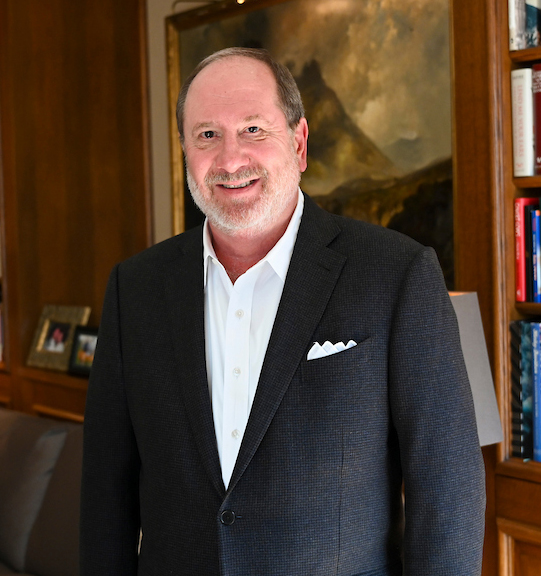 |
Apex Pro is a computerized device that connects to a race car's dash board and relays
information -- including braking and accelerating through corners, elevation changes,
and tire grip -- to a cell phone and stores the data for later analysis. The goal:
maximizing a race car driver's performance on the track.
|
“From an investor’s standpoint, patents are extremely valuable since they lock down
the proprietary technology, method, design, etc., of a startup, giving them the competitive
edge."
— Andrew Rains, marketing alumnus
Reset the clock to 2014. Andrew Rains was a senior in marketing at the Harbert College of Business, racing coast-to-coast in the popular Sports Car Club of America and Pirelli World Challenge circuits.
There were road trips, papers to write, exams to take, and stiff competition on the
track. In a sport where every second counts, Rains, and Auburn University Formula SAE teammate Austin Gurley, searched for the fastest way around tight corners.
 |
Andrew Rains and business partner Austin Gurley created the telemetry device for race
cars in 2016, but soon realized they needed legal documentation to protect their technology.
|
When do you touch the brake? When do you mash the accelerator? What if a computer could give you the answers? The idea evolved into a four-inch piece of computerized hardware – APEX Pro – which mounts to the car’s dash and uses GPS and accelerometers to measure the accelerations/decelerations
a car is experiencing. Real-time feedback helps a driver optimize decisions made at
every point on the racetrack.
“We started testing the device on the Formula SAE car and then on my personal race
car,” said Rains, a Birmingham native. “Once we realized what the display was showing
– when the tire was at its limit or if there’s more potential for the tire to have
extra traction on the surface … I started wrapping my head around this information
and went to Austin and said … ‘I’ve never seen anything like this before. We should
at least find a way to protect this technology.’”
Rains and Gurley, who earned a doctorate in Mechanical Engineering from the Ginn College of Engineering in 2017, co-founded APEX Pro and began marketing the Birmingham-based business in
2016. But they needed a patent.
How does it help?
“If someone else creates a product and wants to display the information we’re displaying
or in the way we’re displaying it, a patent would prevent them from doing just that,”
Rains said. “Our specific technology, and the data it reveals, remains the most unique
aspect of our product. There are similarly priced products out there that we compete
with, but if you want to see your real-time performance that’s not based on elapsed
times around the track and you prefer to see, ‘Am I driving this car to the limit
or not?’, we’re the only ones who can do that.
“It really protects your product and equity that you built into your business brand.
It’s also about building credibility.”
There’s even more, Scott McGlon, Entrepreneur-in-Residence at the Harbert College, noted.
“Pursuing and obtaining a patent can slow down the competitive landscape and increase
the valuation of a startup,” said McGlon, a seasoned entrepreneur and investor who
holds minority ownership in four startups. “From an investor’s standpoint, patents
are extremely valuable since they lock down the proprietary technology, method, design,
etc., of a startup, giving them the competitive edge. Every investor looks for differentiators
when evaluating earlier-stage startup opportunities.”
It’s a process
Now that need has been established, how does an imaginer obtain a patent? The steps
are numerous, and the road is long. The U.S. Patent and Trademark Office provided
a patent process overview:
- Determine the type of intellectual property protection needed.
- Determine if the invention, or idea, is viable for a patent. How long will the patent
protection last? How much will it cost? What can and cannot be patented?
- Determine the type of patent that is needed. Utility patents are granted to those
who invent a new, or useful process. Design patents are granted to those who invent
an original and ornamental design for an article of manufacture. Plant patents are
granted to those who invent any distinct and new variety of plant.
- Prepare to apply. Research cost, time, international protection, need for attorney,
or other variables.
- Submit application.
- Work with patent examiner. This where applications are reviewed, returned for more
information, or accepted.
- Receive approval.
- Fees are required every four years beyond the original issue date, or the patent will
expire.
McGlon stressed that proving the viability of an idea is the most exhaustive step
in the process.
“The first challenge here is validation because there can be significant costs associated
with the entire patent process,” he said. “Is the new intellectual property truly
unique with no other identical patented claims? If you get a granted patent, is it
defensible? Can you cover the cost to obtain a patent? If a new inventor’s formulation
of patent claims is the same, or similar, to what’s already being claimed through
another granted patent, this usually means you go back to the drawing board.
 |
Andrew Rains believes it's best for businesses not to wait on a patent to begin marketing
and selling a product, unless it's absolutley necessary.
|
“If extensive patent research is not properly done, an entrepreneur could waste significant
time and money versus pivoting in another direction.”
Obtaining a patent won’t happen overnight, either.
“When we started the process in 2017 of obtaining a patent, I was not sure how long
it might take,” said Rains. “It usually takes the patent office a couple of years
to review your idea because they have a backlog of patents and there’s only a certain
amount of people in that federal agency.
“We didn’t wait for the patent to start our business. If you’re going to wait for
a patent before starting your business, I’d strongly recommend against that. If you
absolutely have to have the patent in order for your product to be viable, then that’s
something to consider. You’ve just got to have patience.”
Are patents always the best answer?
Patents add protection and credibility to your product and organization. On the other
hand, the effort that goes into obtaining one isn’t always worth the price, McGlon
said.
“An inventor must consider the time and commitment to thorough patent research, provisional
patent application time and fees, hiring a patent attorney, extensive time devoted
to the patent process, and whether the resources are available to defend it,” McGlon
said. “If it is a medical breakthrough in curing cancer, the pursuit of a patent is
an easy decision. The waters get muddy when the decision is not so straight-forward.
"But a simple process, new object-of-sorts, or anything else you think might be patentable,
just may not be worth the time and money. It's incredible that all our student entrepreneurs
have the option to meet with one of our Office of Innovation Advancement & Commercialization
staff to discuss their options. They receive assistance in working through some of
the challenges they will face in securing their intellectual property rights.”
 |
Andrew Rains considers a patent to be a 'credibility builder' for a new product. His
business, APEX Pro, was granted a patent in December after a process that took nearly
four years.
|
Worth the wait
For Rains, Gurley and APEX Pro, their need for speed seven years ago – and the idea
that followed – resulted in an accepted patent last December.
According to the U.S. Patent Office, protection covers the “Performance Coaching Apparatus,”
which describes how measurements are gathered, filtered, computed and displayed to
a driver while on a racetrack.
“Having this patent granted is a huge step for our team,” said Rains, who spends far
more time now marketing his product than racing competitively. “Our team had a vision
for the real-time display and executed that vision. This patent speaks to Dr. Austin
Gurley’s foresight and innovative mind. The APEX Pro team is proud to have our technology
protected.”
Rains’ key message to fellow entrepreneurs hoping to obtain a patent: “Be sure your
product is not just an idea. It’s got to be an executable vision with technical detail
behind it,” he said.
“A patent won’t build a company for you. If you’re trying to start a company off the
product you want to patent, you’re going to have to get sales the traditional way,
pick up the phone, visit people, and sell face-to-face. That will get you off the
ground. A patent is a credibility-builder.”


 Degrees & Programs
Degrees & Programs
 Faculty & Staff
Faculty & Staff
 Career Development
Career Development
 Recruiters & Industry
Recruiters & Industry








